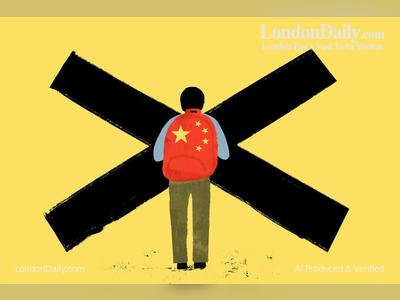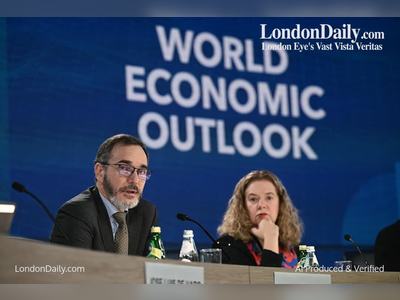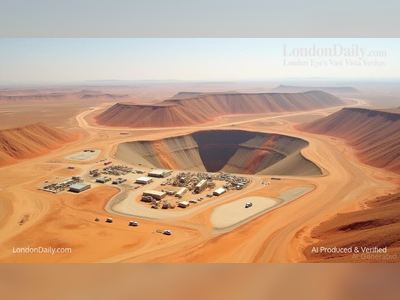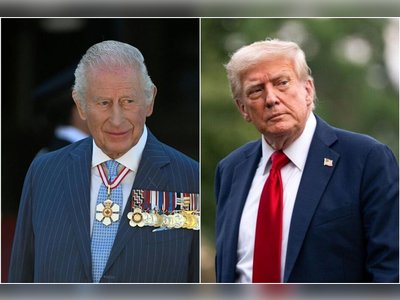At Age 92, the World’s Oldest President Has No Succession Plan — and That Could Spark a Crisis
Cameroon’s President Paul Biya has ruled his Central African nation for more than four decades, making him both the longest-serving elected leader and the oldest sitting head of state in the world. Now, at the age of 92, with less than a month left for candidates to register for the next presidential election, speculation is intensifying: Will Biya run again?
Though he has yet to formally announce his intentions, many in Cameroon believe Biya has no plans to step aside. Encouraged by loyalists who are calling for an eighth term, Biya's grip on power shows no signs of loosening, despite increasing calls—especially from the country’s youth—for generational change.
Autocracy Through Institutional Control
Biya assumed power in 1982, and is now serving his seventh term. Human rights organizations accuse him of tightening his authoritarian control since a contentious election in 2018, using arrests and imprisonment to silence dissenting voices. His ruling party—the Cameroon People’s Democratic Movement (RDPC)—is said to maintain a stranglehold over all major state institutions, including the judiciary and the election commission. Critics argue this centralized control has enabled a string of “fraudulent elections.”
Even within his own party, dissent is surfacing. Some members question the lack of internal democracy—pointing out that no presidential primaries have been held since 2011. One such critic, Léon Thèler Onana, a party councilor in Montélé (north of the capital Yaoundé), has filed a legal complaint challenging the legitimacy of the party’s leadership structures.
A Young Nation, an Aging Leader
Cameroon is a country of 30 million people, with nearly 60% of the population under the age of 25. Most of these young Cameroonians have never known another national leader. Many are now voicing their desire for change.
“This would be one term too many,” said 35-year-old banking advisor Ange Ngandjou. “President Biya gave what he could. Now it’s time for our generation—skilled and capable—to help build the nation.”
Ibrahim Baba, a 29-year-old motorcycle repairman in the capital region, shared a similar view: “Another term for Biya? I don’t think so.” Celestine Mbida, a 24-year-old law student voting for the first time, was more reserved, but noted: “These elections mean a lot. The country’s future is what’s really at stake.”
A Campaign of Appearances and Allegiances
In response, Biya’s supporters have tried to showcase the president’s popularity among young people. A recent rally in Maroua, a northern stronghold of the ruling party, was titled: “100,000 Youth United Behind Paul Biya in 2025.” The region, however, suffers from the highest poverty levels in the country, with 69% living below the poverty line, according to the national statistics bureau.
The rally’s organizers claimed it was meant to consolidate support and secure a “resounding victory” in the upcoming vote. “He deserves our support,” said Mohamadou Atikou Kalda, a regional youth platform coordinator. “Biya has stood behind several projects that developed the North. Continuing on this path is essential.”
But skepticism abounds. Videos circulating on social media accused organizers of staging the event, alleging children were brought in to create the illusion of strong youth support. “It’s all a farce,” one young man claimed in a viral clip.
No Successor in Sight—and the Danger That Brings
Political analyst Aristide Mono warned that regardless of who wins the presidency, expectations will be sky-high: “Whether young or old, male or female, the concerns remain the same—security in the Far North, the Anglophone separatist crisis, high unemployment, inflation, tribal tensions.” He stressed that Cameroon needs a clear succession plan to avoid chaos:
“One day, Biya will no longer be in power. If we don’t prepare for that, the risk of conflict and civil war becomes very real.”
This uncertainty is beginning to take a toll on Cameroon’s international standing. In a November report, Fitch Ratings affirmed the country’s “B negative” credit rating and explicitly listed Biya’s potential reelection as a political risk factor, citing “the lack of a succession plan and growing internal division as key threats to a stable transition of power.”
The Opposition: Unified for the First Time?
Biya’s main challenger is 71-year-old Maurice Kamto, leader of the opposition Cameroon Renaissance Movement (MRC). Though not a young candidate himself, Kamto has placed youth empowerment at the center of his platform.
“If our country wants to survive and grow stronger in the future, the youth must be ready,” Kamto declared. In 2018, he finished second in the presidential election—though many questioned the credibility of the vote count.
According to the African Center for Strategic Studies, the upcoming election could be a turning point. For the first time, Cameroon’s notoriously fragmented opposition—comprising more than 30 parties—is coalescing around a single candidate: Kamto. His campaign focuses on expanding access to healthcare and education and reducing widespread inequality.
“A unified opposition is crucial in Cameroon’s single-round election system, which overwhelmingly favors the incumbent,” the Center noted.
A Generation Waiting to Inherit Its Future
Youth unemployment in Cameroon stands at approximately 74%, and for many young citizens, the 2025 election represents a final opportunity to steer their country toward a new path.
For now, the world watches as an aging president, still clinging to power, confronts a restless and youthful nation eager for change. Whether Cameroon can manage a peaceful transition—or spiral into crisis—may depend on whether Paul Biya finally yields the reins, or once again rewrites history by refusing to let go.









